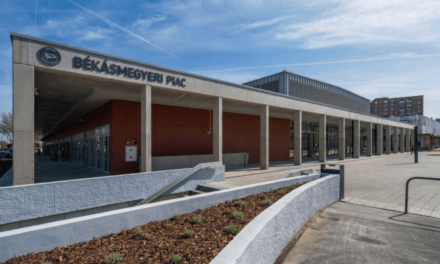Roma expert István Forgács wrote a debate-initiating article in the columns of Mandiner about how Momentum is trying to win over the Roma until the next elections.
We have extracted details from the article:
"According to Momentum, the anti-Gypsy attitude makes the domestic economy less competitive. I think I understand what they mean when they say this, but at the same time, this idea is misleading because a competitive economy needs workers with appropriate qualifications. An educated person, who has at least acquired a profession, leaves vocational secondary school, which, however, must be completed.
As much as some people would like to present the image that tens of thousands of Gypsy children are being expelled from schools that offer the profession, the reality is that a very large part of these young people, due to their own fault and their own and their community's bad decisions, are far away from the profession and the right jobs. And this really hurts domestic competitiveness.
And the private companies do not bring in hundreds or thousands of foreign workers out of racism, but because they cannot give jobs to the Gypsies locally due to their lack of education.
I primarily believe in economic-based social catch-up, I have been working on the development of vocational training for years, and I bitterly experience that the domestic economy, and even the fate of the country, depends on the individual decisions made in these gypsy communities. (…)
Momentum says that we must work together with the Gypsies for their benefit. It is one of the most classic topics that usually no government can really fulfill, and mostly not because it would require Roma actors who are suitable to be involved and used. There are practically no such people today, or only those who may be suitable for tasks in a certain topic, but do not dare to see things in a sufficiently complex way, and it is difficult for them to express themselves about the vision of the future that certain processes paint before us, they are often afraid of the weight of their own words.
A significant part of the so-called "Roma intelligentsia" is stuck at the level where they are artists, activists, and revolutionaries at the same time, but they already reject the issue of shared responsibility necessary for practical tasks, and generalize in the same way towards the representatives of the majority society or certain areas (police, teachers, doctors ), as, in his opinion, this country does to the Gypsies.
It is not possible to discuss why the Iskolaőr program is successful with Roma opinion makers who are offended and experience collective victimhood. Or why it would be important to connect the issue of agriculture and the gypsy catch-up. (…)
The goal of Momentum and the entire opposition is to restore compulsory schooling to 18 years of age. One of the most widespread debates in recent years is how long children should be "kept in" education. In recent years, I have met hundreds of young Gypsies who regretted leaving school. They didn't throw them out, they left them there. The image that shows the young Gypsies as collective victims, who suddenly find themselves no longer in the classroom because they were "pushed out" or even "given up on" by the domestic education system, is false. The truth is that they pushed themselves out and they gave up on themselves and their future in an irresponsible moment.
Eradication of segregation is also an eternal topic. Let everyone finally understand: deliberate school segregation must be opposed, eradicated, it is illegal, and the court must decide on it. But passive segregation in many regions of the country is a process that needs to be accepted. There are simply not enough non-Gypsy children being born so that we don't see Gypsy children in the majority of kindergartens and schools. And I say it as a gypsy person: it's not a problem if everyone or a lot of gypsies are in the class. The problem is that if the school is neglected or if the teacher does not work well. And I can say that there are such schools. But in the past decade, an incredible amount of kindergartens and schools have been renewed, and nursery school developments are ongoing.
Of course, there are bad examples everywhere, but Gypsy children and their families must understand and accept one thing in this situation: the government provides renovated, equipped schools, free meals, and free textbooks, while often thousands of truly altruistic and enthusiastic teachers fight for talented children, and they have only one thing to do: study.
It will also be discussed how important the issue of healthcare and the Roma are. My own opinion is that this is even more difficult to undertake with sufficient honesty than the topic of gypsy settlements. Because as long as many people only want to see how difficult it is for a gypsy to get to a doctor (which is very often the case), we should also see and deal with what a more health-conscious lifestyle means, drug exposure at a young age, the high number of premature births in Borsod, the lack of sports (especially in the case of gypsy girls, the majority of whom do almost no physical exercise after the 8th grade), or fear and aversion to health screenings.
Based on all of this, I believe that Momentum hastened and took it in the wrong direction as to what they (and the entire opposition) want to represent in the Roma issue."
István Forgács' entire article here.













